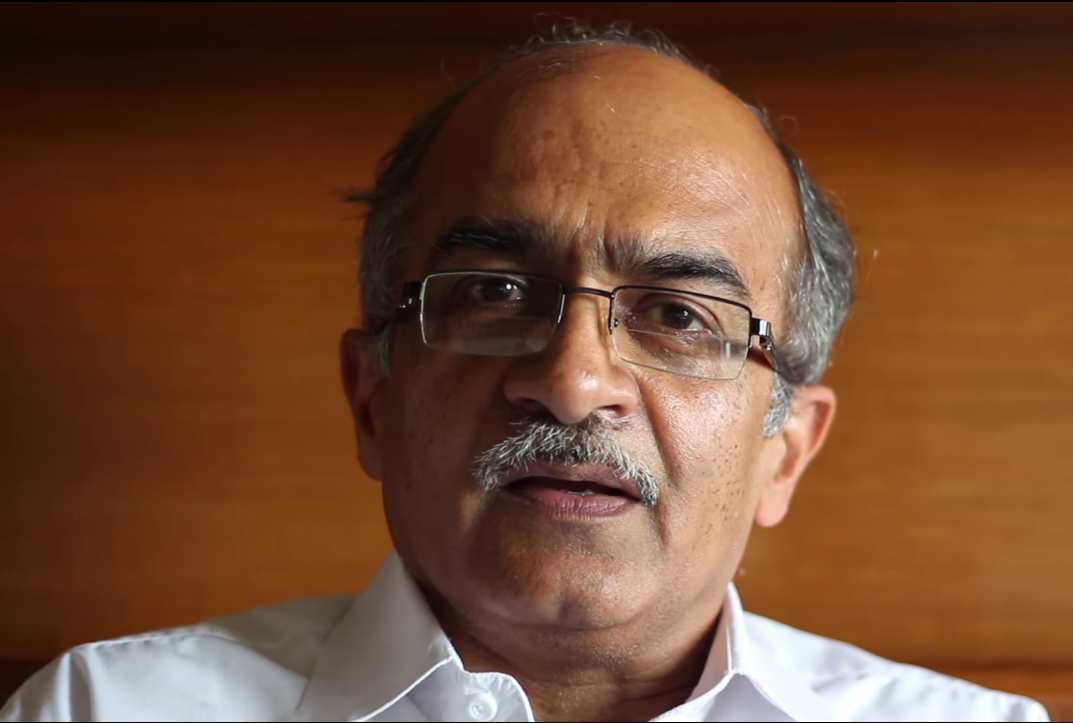
Prashant Bhusan – Source Wikipedia Commons
by Arnob Baidya 12 September 2023
As India gears up for the Lok Sabha elections in 2024, concerns are mounting about the potential for political maneuvering through orchestrated incidents that could sway public sentiment. Renowned Indian lawyer Prashant Bhushan has sounded an alarm, warning that the Modi government may resort to false flag operations to secure electoral advantages, a tactic that has raised eyebrows in the past. Simultaneously, Pakistan claims to have exposed an alleged Indian plot involving a false flag operation in the disputed region of Indian illegally occupied Jammu and Kashmir (IIOJK). These developments underscore the volatile nature of politics in the region, the significance of nationalism in electoral strategy, and the pressing need for transparency, accountability, and diplomacy.
Prashant Bhushan’s warning about potential false flag operations is not without precedent in Indian politics. The term “false flag” refers to covert operations conducted by one party to make it appear as though they were carried out by another, often with a specific political or military agenda in mind. In the context of India, the Pulwama attack in February 2019 serves as a vivid example. Over 40 Indian troops lost their lives when an explosive-laden vehicle targeted a Central Reserve Police Force convoy in the Pulwama area of occupied Kashmir. While the attack was initially attributed to terrorist group Jaish-e-Mohammed, many political experts and politicians have long speculated that it was politically motivated and orchestrated to secure electoral gains for the Modi government.
Bhushan’s concerns regarding false flag operations stem from the belief that such incidents conveniently appeal to the Bharatiya Janata Party’s (BJP) ‘nationalistic’ approach to gain electoral dominance. Nationalism has been a potent tool in the BJP’s electoral strategy, and moments of crisis or conflict have often been exploited to rally public support. The lawyer went further, suggesting that the government might even stage a state-orchestrated terror attack on the Ram Mandir in Ayodhya, with the aim of consolidating votes along communal lines. The Pulwama incident, in particular, raises important questions about the government’s handling of the situation. Bhushan demanded accountability from Prime Minister Narendra Modi for his three-hour-long silence after the tragedy and questioned why he instructed Satyapal Malik, the former Governor of IIOJK, to remain silent. Furthermore, the failure to conduct a thorough investigation into the incident, with the report remaining unpublished even after five years, has fueled suspicions of political manipulation. The concerned officers, who should have been held accountable, allegedly received promotions instead, leading to further doubts.
Bhushan did not spare the corporate media in his critique. He accused them of sensationalizing the Pulwama tragedy for higher television ratings, alleging that they shamelessly acted on the cue of their ‘masters’ by compromising the interests of India. This sensationalism, he argued, not only denied justice to the soldiers who lost their lives but also allowed the Modi government to politicize their deaths for electoral gain. The media’s role in shaping public opinion cannot be underestimated, and its susceptibility to sensationalism poses significant challenges in times of crisis. The Pulwama incident, as Bhushan highlighted, was not just a matter of national security but also a political tool that influenced voter sentiment.
Drawing parallels with the 2019 Balakot airstrike, Bhushan suggested that the Modi regime might resort to similar tactics in the run-up to the 2024 elections. The Balakot airstrike involved India conducting an airstrike against alleged terrorist targets in Pakistan’s Balakot region. The Modi government portrayed the operation as a resolute response to terrorism, further emphasizing its ‘strong on security’ image. Critics, however, questioned the veracity of the claims and the timing of the operation, which took place just weeks before the 2019 general elections. Bhushan’s concern was that the government might either divide India or carry out what he referred to as ‘Pulwama 2.0’ and ‘Balakot 2.0’ to exploit hypernationalism among the masses. This raises broader questions about the ethics of using national security incidents for political gain and the impact on democratic processes.
In parallel to Bhushan’s warning, Pakistan’s intelligence agencies have reportedly claimed to have exposed an alleged Indian false flag operation planned for India’s Republic Day on January 26, 2023, in IIOJK. According to Pakistani intelligence, the operation was intended to be carried out by the Indian Army and police in the occupied valley. Sector Poonch, near the Line of Control (LoC), was reportedly chosen as the location for this operation. Pakistani intelligence agencies have identified three key players in the alleged Indian plan: Bashir, an agent of India’s 93 Infantry Brigade, and two associates, Aalam and Aslam. The plan involved Bashir using local individuals to attempt to enter IIOJK by planting bombs or improvised explosive devices (IEDs) from the Azad Jammu and Kashmir side. The intent was to stage a “failed” attempt near a mosque in occupied Kashmir. Additionally, the Indian Army and police were allegedly planning to reveal fake recoveries by ambushing the troops of the Dogra Regiment of the 93 Brigade. The purpose of this alleged false flag operation, according to Pakistani intelligence, was to spread the propaganda of ‘infiltration’ in IIOJK to the world.
The warnings from Prashant Bhushan and Pakistan’s claims regarding a potential false flag operation underscore the complex interplay of politics, nationalism, and security in the lead-up to India’s 2024 Lok Sabha elections. These developments highlight the need for transparency, accountability, and responsible reporting in an era where sensationalism can have far-reaching consequences. As India navigates the path to its next elections, it is crucial for its democratic institutions to uphold the principles of justice and truth. Moreover, diplomacy remains vital in addressing regional conflicts and disputes, as the potential for escalation in the wake of such incidents is a matter of concern for both countries and the international community. Ultimately, these incidents serve as a reminder of the delicate balance between politics and security in the world’s largest democracy.
